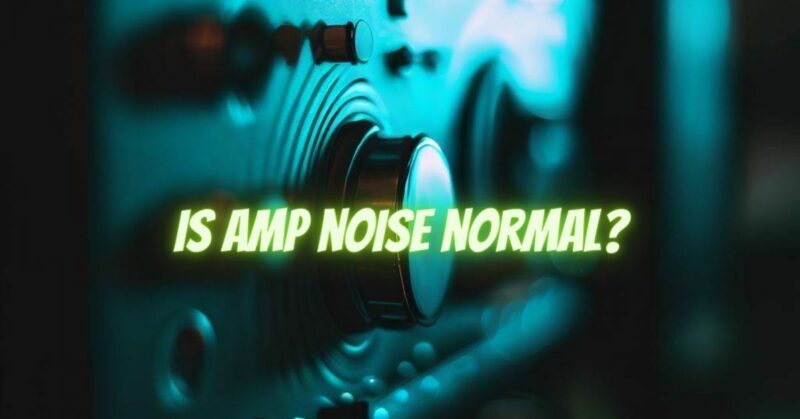When playing guitar or bass through an amplifier, it’s not uncommon to encounter some level of noise. However, determining whether the noise is normal or indicative of an issue can be confusing for musicians, particularly those new to electric instruments. In this article, we will explore the topic of guitar/bass amp noise, helping you understand what is considered normal and when it might be a cause for concern.
- Normal Background Noise:
It’s important to recognize that a certain amount of background noise is inherent to guitar and bass amplifiers. This noise can manifest as a low-level hum, hiss, or even a subtle buzz. Factors such as the amp’s design, components, and signal chain can contribute to this noise. In most cases, this background noise is considered normal and not a cause for alarm, as long as it remains at a tolerable level and does not interfere significantly with your playing or performance.
- Signal Chain Influences:
The components in your signal chain can also introduce noise into the amp’s output. Guitar cables, effects pedals, and even the instrument itself can contribute to noise if they are poorly shielded or suffer from grounding issues. It’s essential to ensure that your cables and equipment are in good condition, properly connected, and free from any damage or loose connections. Regular maintenance and careful cable management can help minimize noise-related issues.
- Environmental Factors:
Environmental factors can play a role in the amount of noise experienced with a guitar or bass amp. Factors such as electrical interference, power fluctuations, and proximity to other electronic devices can contribute to increased noise levels. It’s worth experimenting with different power outlets and cable routing to minimize potential interference. Additionally, keeping your amp away from sources of electromagnetic interference, such as Wi-Fi routers or fluorescent lighting, can help reduce noise.
- Troubleshooting Excessive Noise:
While some level of noise is expected, excessive or persistent noise that disrupts your playing or significantly affects the tone may indicate an underlying issue. If you notice sudden or drastic changes in the amount or character of the noise, it’s worth investigating further. Check for loose connections, faulty cables, or damaged components in your signal chain. In some cases, professional servicing or repairs may be necessary, particularly if the amp is exhibiting unusual noises like loud crackling, popping, or intermittent cutouts.
- Seeking Professional Assistance:
If you are uncertain about the source or severity of the noise in your guitar or bass amp, it’s always advisable to consult a qualified technician or experienced guitar technician. They can inspect your equipment, diagnose any potential issues, and provide appropriate solutions or repairs if necessary. Professional assistance can help ensure optimal performance and address any persistent or bothersome noise-related problems.
Conclusion:
Guitar and bass amp noise is a common aspect of amplified playing. While some level of noise is considered normal and expected, it’s essential to differentiate between normal background noise and noise that may indicate a problem. Understanding the factors that contribute to amp noise, troubleshooting excessive or disruptive noise, and seeking professional assistance when needed will help you maintain an optimal playing experience and ensure your gear performs at its best.


